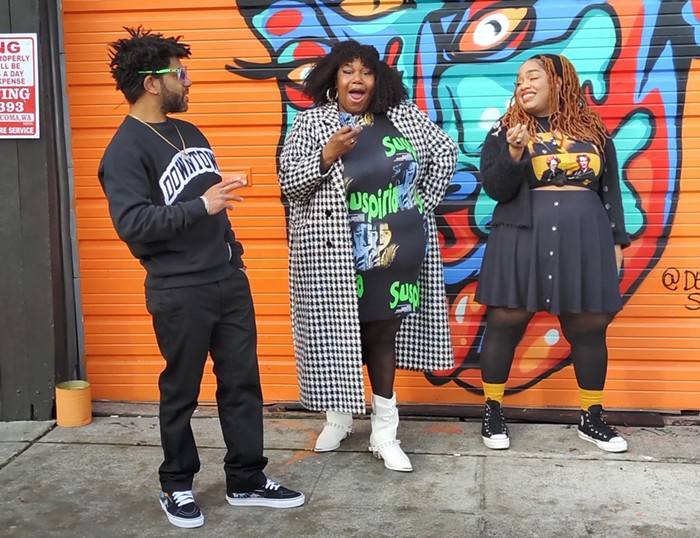
Two months into Uncle Ike’s brand new pesticide testing program and the busy pot shop has already nabbed its first failure. A concentrate tested positive for having 1.5 times the state’s limit for piperonyl butoxide, a pesticide usually used in conjunction with other insecticides.
Ian Eisenberg, the owner of the pot retailer, said it didn’t surprise him how quickly his new program found a failure. He pointed to a recent report that found that over 40 percent of the pot products tested at the Washington State Department of Agriculture failed for containing illegal amounts of pesticides.
“42 percent is a big number,” Eisenberg said. “It’s going to be biased because those tests are complaint based but 30 percent seems to be what we think is going to fail out. It’s a lot and it shouldn’t be that way.”
Washington is one of the only states in the country that legalized pot but did not require pesticide testing for legal weed products. California, Oregon, Colorado, and Nevada all require pesticide tests for all pot products. Washington, on the other hand, conducts random and complaint-driven pesticide testing. Those complaint driven tests are the ones that appear to be failing at above 40 percent levels.
Eisenberg is part of a statewide movement of private businesses conducting their own pesticide testing instead of waiting for the state to require it. Eisenberg randomly tests five products off his shelf every month. If the results come back with illegal amounts of pesticides in them Eisenberg immediately removes the product from the shelves and offers refunds. Eisenberg also tests other products from the same vendor to see if they fail as well. If that second product fails, then all products from that company are pulled from shelves. If that vendor wants to be sold at Uncle Ike's they must provide pesticide testing for all of their products for the next six months.
Eisenberg said he started the program after he got tired of waiting for the state to act.
“I think it’s a lot of consumer education that has to happen and we got tired of talking about it and complaining about it and decided to do something,” Eisenberg said.
Brooke Davies, the executive director of the Cannabis Organization of Retail Establishments trade group, said Ike’s was the first store she knew of to require storewide random testing for pesticides.
“Ike's is the only store I know of with a program like this. It is possible that others may follow in his footsteps, however a program like this requires thoughtful planning,” Davies said.
It’s not quite on the same level of Ike’s testing, but Origins Recreational also conducts some pesticide tests on their products. The retailer, which has locations in West Seattle and Redmond, requires new suppliers to provide test results showing they do not use pesticides before they can send their products to the store. They also conduct random pesticide testing on their house Origins brand products, according to Jon Sherman, one of the store’s owners.
“When we onboard a vendor we require them to provide us that testing material and we have a separate affidavit that each vendor signs that acknowledges that we operate within the legal boundaries of the state and acknowledges that they don’t have the restricted pesticides,” Sherman said.
Sherman said growers that use illegal pesticides don’t even try to get on his shelves because they know about the testing.
“I think a lot of them just don’t come to us because they know we are going to test them,” Sherman said.
The Origins program differs from Ike’s because it only requires pesticide testing for that first batch of products, after that the supplier does not need to provide additional pesticide testing. At Uncle Ike’s, every product on the store’s shelves can get randomly tested for pesticides during any given month.
That’s how this first culprit got nabbed, a concentrate called Mimosa #26 made by Exotikz. The 75 percent THC product had 3.368 parts of piperonyl butoxide per million, according to Uncle Ike’s testing. The state’s limit is 2 parts per million.
Pot growers often complain that pesticides can inadvertently contaminate pot products from unlabeled soils or other products that the farmer didn’t know contained pesticides. Eisenberg, who is publishing the results of these pesticides online, said he wasn’t concerned that a grower could inadvertently get a negative result.
“That’s the growers’ responsibility to know what they’re using. I’m not that concerned,” Eisenberg said. “It’s our responsibility to live up to our LCB rules and laws as it is their responsibility.”
Eisenberg said he is relying on Jim MacRae, a data scientist and cannabis consumer safety advocate, and Tobias Coughlin-Bogue, a local journalist that has covered the state’s pesticide problem for The Stranger, to keep the program as non-partial as he can.
Eisenberg said in the demanding business of legal weed, you can't simply trust that a grower isn't using illegal pesticides.
“There’s too much of an incentive to use a pesticide if you are going to lose your whole crop," Eisenberg said. "A lot of growers, if they lose their entire crop they are out of business.”
And now Eisenberg is making sure if they use illegal pesticides, they won't be able to sell their pot at Seattle's busiest chain of weed shops.
















